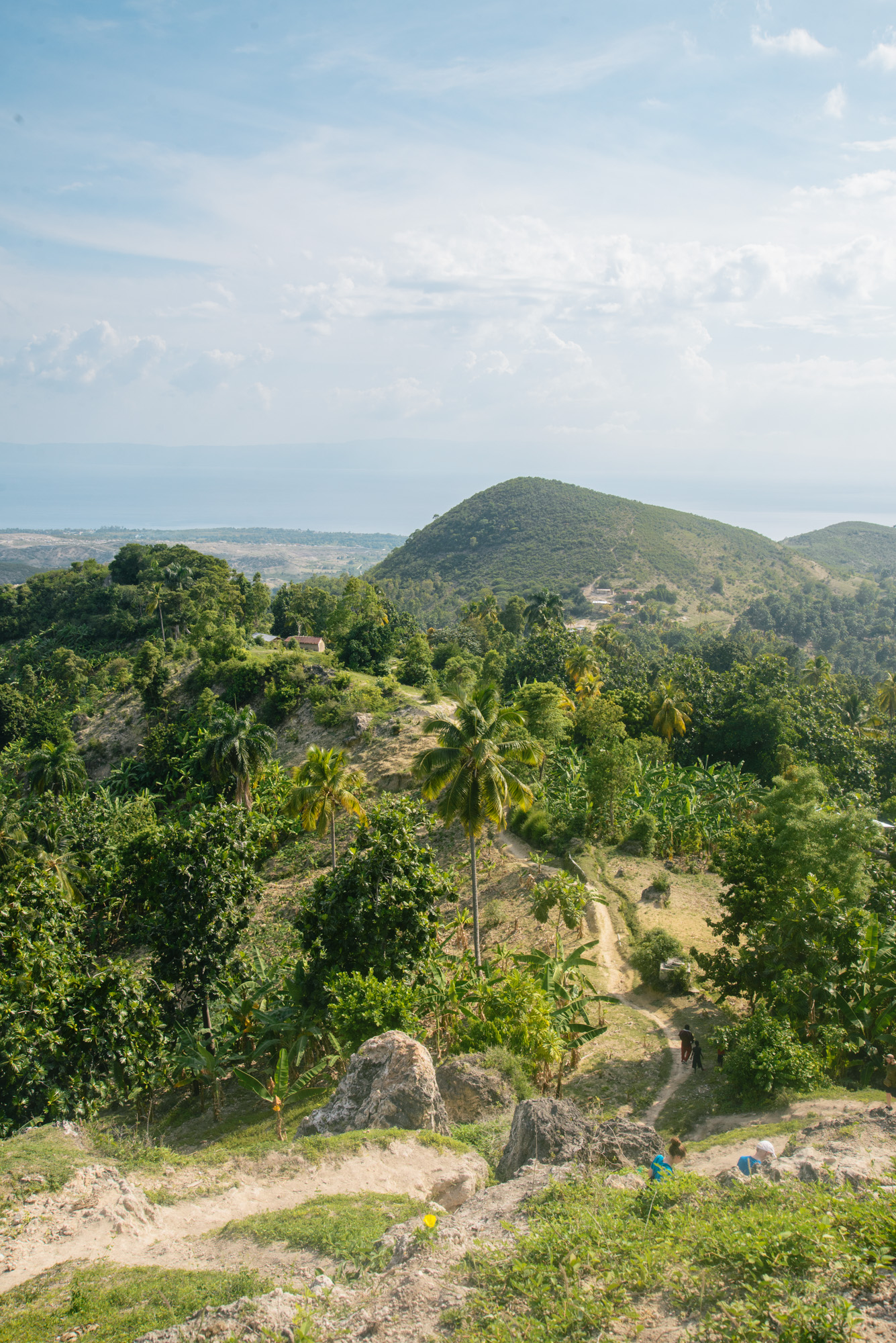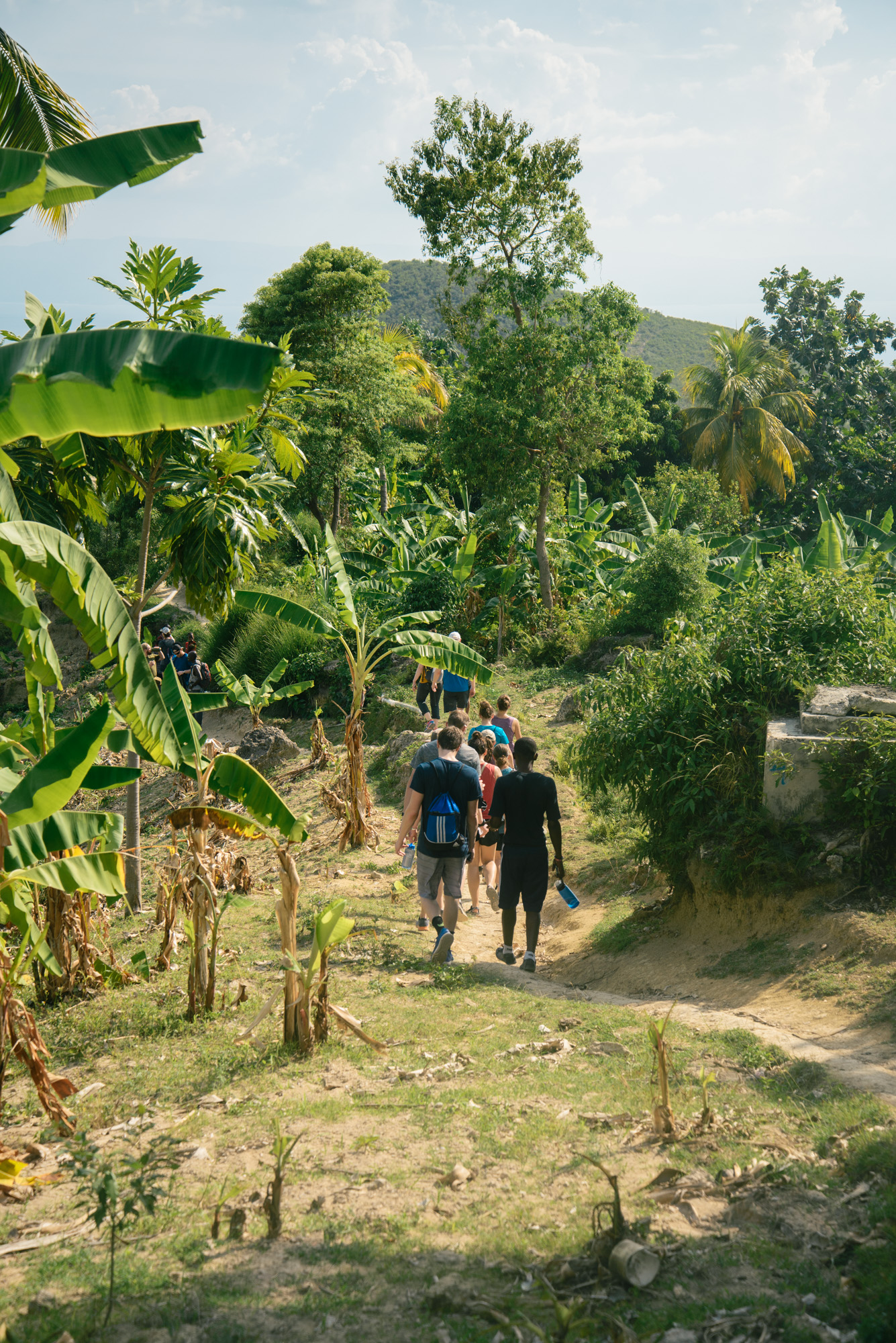Project Living Hope has a partnership with Corban University. We have taken several students with us on athletic trips, and every year for the past eight years, Guesly Dessieux, our president and Sarah Comstock, our Vice President, have helped lead a medical trip for Corban. This year we decided to bring the team to work with another local partner organization, Project Help Haiti, so that they could run a clinic in the town of Camp Marie, where PLH serves. Below you will find a reflection from Kate Vetter, one of the Corban students who participated on the trip, and the impact she saw that PLH is having in our community.
By Kate Vetter
As I stepped off the airplane hot, sticky air surrounded me, clinging to my skin and filling my lungs. I took off the flannel that had kept me warm on the much cooler plane and turned to a teammate, “It feels like we just walked into a giant sauna!” A broad smile spread across his face, “Kate, do you realize we’re in the airport? It’s air conditioned.”
My eyes grew wide with surprise. Just a bit later I discovered my teammate was right—it was much, much hotter outside! I had expected Haiti to be hot, yes, but having never visited the Caribbean I had no frame of reference for what humid heat would feel like.
This May I went to Haiti with Corban University’s medical missions trip. Our team was comprised of a dozen students and about the same number of healthcare professionals including Dr. Guesly Dessieux. Our purpose? Running clinics in the communities surrounding Camp Marie, providing healthcare and medication for the people.
We prepared extensively for the trip, learning about healthcare issues in Haiti and approaches for nonprofit work in developing countries. Despite this, I had many interactions resembling the exchange I’d had with my teammate about the heat. Having never been in Haiti before, I had no idea what to expect, and nearly every facet of the country surprised me in some way.
On one of our first days we went on a hike up a mountain. An avid hiker from Oregon, I was anticipating beautiful trees, and hoping for a good view. Both my expectations and hopes were far exceeded by our journey which snaked up the mountainside.
Sections of plantain trees, and looming breadfruit trees provided areas of shade from the hot sun, but when the trees were sparse, the views were stunning which more than made up for the heat. What surprised me about this hike was the consistent spread of homes which continued with our upward climb. We did not leave the villages behind at the foot of the mountain, rather, our so-called hike was really a walk on the roads many use for a regular commute.
Clinic days, similarly, brought many surprises. My heart was warmed by the multi-generational families who came in together, clearly invested in caring for one another. My favorite part of clinic, however, and one of the most pleasant surprises of the trip were the many employees from Project Living Hope who accompanied us. They did not come because they had been asked to accompany us, rather, they chose to. Their presence was an enormous help practically as they monitored the flow of patients, but also spoke volumes about their dedication to embodying servant leadership as a means of improving their own community and Haiti.
What surprised me most though, more than the heat, mountainside villages, and clinic days, was how obvious the relative magnitude of my opportunities, wealth, and privilege became. Because I was born in a country with public education through high school, generally plentiful jobs, and allowance of international travel, I have had opportunities galore.
Grappling with my circumstances given this trip to Haiti has transformed my view of the world in many ways. While dwelling on the magnitude of my own privilege, feeling guilty for my plenty or overwhelmed by how small I am is an easy trap to fall into, I have instead chosen to focus on what can be done.
How will I use all that I have? My gifts and my talents, my money and my privilege—how will I use these things in a way that is honoring to the Lord, and communicates the love of God to those I meet?
While it is a small step, I am choosing to support Project Living Hope as a part of this newfound effort to use what I have. I consider myself lucky to have seen the firsthand impact they are having in a Haitian community, and I am thrilled to help support their efforts in any way I can.





